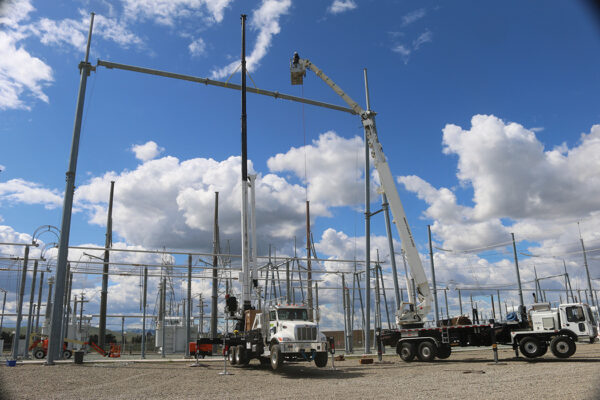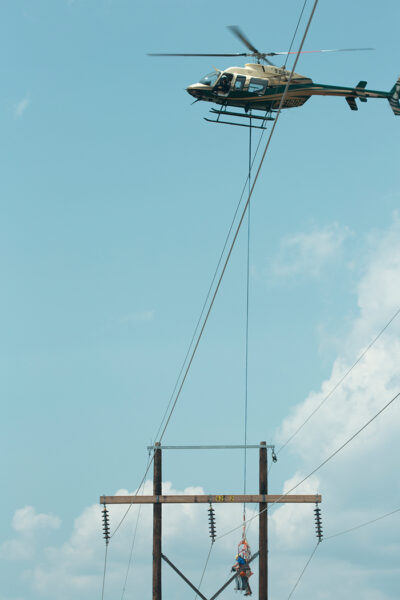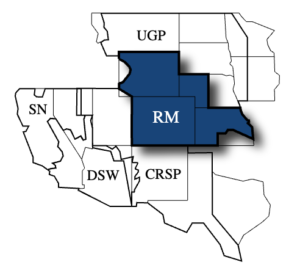
- Details
- By Native News Online Staff
HERNDON, Va. — The Alaska Native Corporation NANA has announced that one of its federal contracting subsidiaries has been awarded a $7 million contract from the U.S. Department of Energy.
Under the five-year contract, Colorado Springs, Colo.-based RiverTech LLC will provide technical support services to the Department of Energy’s Western Area Power Administration in its Rocky Mountain Region.
 Courtesy photoRiverTech, a wholly-owned subsidiary of Herndon, Va.-based Akima, which in turn is owned by NANA, offers a range of mission support, systems engineering, and I.T. capabilities to address engineering and operational challenges. The company is a U.S. Small Business Administration 8(a) certified minority contractor, which provides the company access to federal sole-source contracts.
Courtesy photoRiverTech, a wholly-owned subsidiary of Herndon, Va.-based Akima, which in turn is owned by NANA, offers a range of mission support, systems engineering, and I.T. capabilities to address engineering and operational challenges. The company is a U.S. Small Business Administration 8(a) certified minority contractor, which provides the company access to federal sole-source contracts.
The Western Area Power Administration is a federal power marketing organization that markets and transmits electricity generated by federally operated hydroelectric dams. The administration sells power to wholesale customers including towns; rural electric cooperatives; public utility and irrigation districts; federal, state, and military agencies; Native American tribes and U.S. Bureau of Reclamation customers.
“This award is a testimony to our longstanding support of the DOE,” Duncan Greene, president of Akima’s Mission Systems, Engineering & Technology Group, said in a statement. “We are excited to work with WAPA and support their mission to deliver clean, renewable, reliable hydroelectric power while enhancing America’s energy security.”
The Western Area Power Administration’s Rocky Mountain Region, one of four spanning a 14-state area in the central and western U.S., operates in Colorado, Wyoming, Nebraska and Kansas.
Under the contract, RiverTech will provide technical support services at locations in Colorado, Wyoming and Nebraska. The activities covered under the contract include vehicle and heavy equipment maintenance, facility maintenance, environmental service and engineering support services.
The Department of Energy awarded the contract under the federal government’s One Acquisition Solution for Integrated Services (OASIS) program for small businesses.
Most recently, RiverTech was awarded a five-year, $70.2 million contract from the U.S. Air Force to take on non-flying duties at 14 bases nationwide in an effort to reduce the workload for the branch’s Mobility Air Forces flying personnel, as Native News Online reported in June.
 Courtesy photo.Akima, RiverTech’s parent company, is a federal contractor founded in 1995 that specializes in facilities, maintenance and repair, as well as I.T., logistics, protective services, systems engineering, mission support, furniture and construction. Akima employs 7,500 people across its more than 40 subsidiaries, and currently is working on more than 2,000 contracts and task orders, according to its website.
Courtesy photo.Akima, RiverTech’s parent company, is a federal contractor founded in 1995 that specializes in facilities, maintenance and repair, as well as I.T., logistics, protective services, systems engineering, mission support, furniture and construction. Akima employs 7,500 people across its more than 40 subsidiaries, and currently is working on more than 2,000 contracts and task orders, according to its website.
The businesses are an enterprise of the NANA Alaska Native Corporation, which is owned by 14,300 Iñupiat shareholders with roots in a 38,000-square-mile section of northwest Alaska, much of which is located above the Arctic Circle.
In addition to federal contracting, NANA also maintains a diversified portfolio of commercial businesses in the mining, oil and gas, health care, education, construction and exploration.
More Stories Like This
American Basketball Association Announces Native ABA InitiativeFour Winds South Bend Upgrades to Class III Gaming Casino
Native News Online Wins Two Awards from Native American Journalists Association
Wahlberg Brothers Are a Big Hit at Indian Gaming Tradeshow and Convention in Las Vegas
Native Gro Offers Tribes a ‘One-Stop Shop’ for Entering the Cannabis Industry
Help us defend tribal sovereignty.
At Native News Online, our mission is rooted in telling the stories that strengthen sovereignty and uplift Indigenous voices — not just at year’s end, but every single day.
Because of your generosity last year, we were able to keep our reporters on the ground in tribal communities, at national gatherings and in the halls of Congress — covering the issues that matter most to Indian Country: sovereignty, culture, education, health and economic opportunity.
That support sustained us through a tough year in 2025. Now, as we look to the year ahead, we need your help right now to ensure warrior journalism remains strong — reporting that defends tribal sovereignty, amplifies Native truth, and holds power accountable.
 The stakes couldn't be higher. Your support keeps Native voices heard, Native stories told and Native sovereignty defended.
The stakes couldn't be higher. Your support keeps Native voices heard, Native stories told and Native sovereignty defended.
Stand with Warrior Journalism today.
Levi Rickert (Potawatomi), Editor & Publisher

